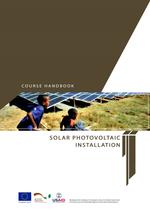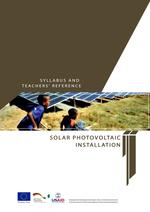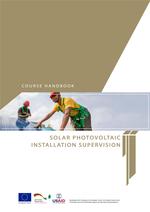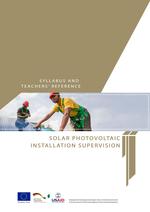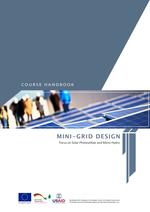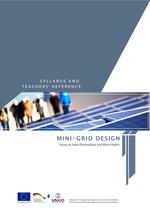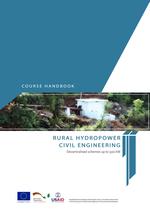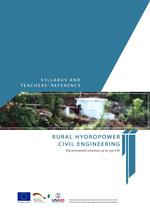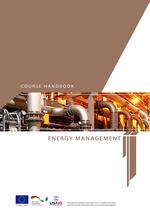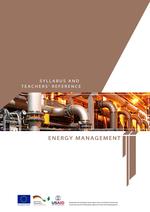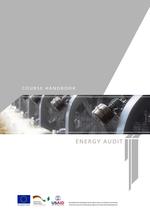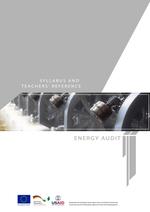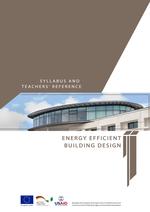Click here to register!
Difference between revisions of "Skills Development: Clean Energy Qualifications in Nigeria"
***** (***** | *****) m |
***** (***** | *****) m |
||
| Line 2: | Line 2: | ||
= Overview<br/> = | = Overview<br/> = | ||
| − | Until 2016, structured training for renewable energy could not be found in Nigeria. There were sporadic training offers which was lacking relevance and recognition. In almost all cases, the problem was lacking of the academic and skills acquisition or targeting the wrong audience, such as rural dwellers. Training on energy efficiency did not exist at all. In short, these offerings were chiefly incompatible with industry and market needs. | + | Until 2016, structured training for renewable energy could not be found in [[Nigeria_Energy_Situation|Nigeria]]. There were sporadic training offers which was lacking relevance and recognition. In almost all cases, the problem was lacking of the academic and skills acquisition or targeting the wrong audience, such as rural dwellers. Training on energy efficiency did not exist at all. In short, these offerings were chiefly incompatible with industry and market needs. |
[http://www.energyplatformnigeria.com/index.php/library/skills-development The Nigerian Energy Support Programme (NESP)] addressed this challenge by introducing relevant qualifications into Nigeria. NESP was funded by the European Union and Germany and it was implemented by [https://www.giz.de/en/worldwide/26374.html the German Agency for International Cooperation (GIZ)] in partnership with [https://www.reeep.org/ the Renewable Energy & Energy Efficiency Partnership (REEEP)]which is funded by [https://www.usaid.gov/ the United States Agency for International Development (USAID)] and implemented by [https://www.winrock.org/ Winrock International].<br/> | [http://www.energyplatformnigeria.com/index.php/library/skills-development The Nigerian Energy Support Programme (NESP)] addressed this challenge by introducing relevant qualifications into Nigeria. NESP was funded by the European Union and Germany and it was implemented by [https://www.giz.de/en/worldwide/26374.html the German Agency for International Cooperation (GIZ)] in partnership with [https://www.reeep.org/ the Renewable Energy & Energy Efficiency Partnership (REEEP)]which is funded by [https://www.usaid.gov/ the United States Agency for International Development (USAID)] and implemented by [https://www.winrock.org/ Winrock International].<br/> | ||
| − | '''Seven clean energy qualification were introduced '''in 2016 ( | + | '''Seven clean energy qualification were introduced '''in 2016 (see table below for downloads of the training materials) imparting skills needed by industry with a goal to enhance employment prospects of trainees. Curricula were developed by international and Nigerian practitioners in pursuit of compliance with prevailing competency standards.<ref name="http://www.energyplatformnigeria.com/index.php/library/skills-development">http://www.energyplatformnigeria.com/index.php/library/skills-development</ref> |
| | ||
| Line 16: | Line 16: | ||
<br/> | <br/> | ||
| − | = Clean Energy Qualifications: Training Materials | + | = Clean Energy Qualifications: Training Materials<br/> = |
{| summary="Renewable Energy Training Handbooks and Syllabus - Nigeria" style="width: 764.55px" cellspacing="1" cellpadding="1" border="2" align="center" | {| summary="Renewable Energy Training Handbooks and Syllabus - Nigeria" style="width: 764.55px" cellspacing="1" cellpadding="1" border="2" align="center" | ||
| − | |+ Training Materials - Clean Energy - Nigeria 2017 | + | |+ Training Materials - Clean Energy - Nigeria 2017<ref name="http://www.energyplatformnigeria.com/index.php/library/skills-development">http://www.energyplatformnigeria.com/index.php/library/skills-development</ref> |
|- | |- | ||
! scope="col" style="width: 179px" | | ! scope="col" style="width: 179px" | | ||
| Line 109: | Line 109: | ||
*[https://www.usaid.gov/ USAID] | *[https://www.usaid.gov/ USAID] | ||
*[https://www.winrock.org/ Winrock International] | *[https://www.winrock.org/ Winrock International] | ||
| + | *Category: [[:Category:Training_Materials|Training Materials]] | ||
| + | *[[Training_Materials_-_Off_Grid_Systems|Training Materials - Off Grid Systems]] | ||
<br/> | <br/> | ||
| Line 116: | Line 118: | ||
<references /> | <references /> | ||
| + | [[Category:User_Training]] | ||
| + | [[Category:Training_Materials]] | ||
| + | [[Category:Capacity_Development]] | ||
| + | [[Category:Solar]] | ||
| + | [[Category:Mini-grid]] | ||
| + | [[Category:Energy_Efficiency_in_Buildings]] | ||
| + | [[Category:Hydro]] | ||
[[Category:Capacity_Building_EE-Lighting]] | [[Category:Capacity_Building_EE-Lighting]] | ||
| − | |||
| − | |||
| − | |||
| − | |||
| − | |||
| − | |||
| − | |||
Revision as of 08:40, 17 July 2017
Overview
Until 2016, structured training for renewable energy could not be found in Nigeria. There were sporadic training offers which was lacking relevance and recognition. In almost all cases, the problem was lacking of the academic and skills acquisition or targeting the wrong audience, such as rural dwellers. Training on energy efficiency did not exist at all. In short, these offerings were chiefly incompatible with industry and market needs.
The Nigerian Energy Support Programme (NESP) addressed this challenge by introducing relevant qualifications into Nigeria. NESP was funded by the European Union and Germany and it was implemented by the German Agency for International Cooperation (GIZ) in partnership with the Renewable Energy & Energy Efficiency Partnership (REEEP)which is funded by the United States Agency for International Development (USAID) and implemented by Winrock International.
Seven clean energy qualification were introduced in 2016 (see table below for downloads of the training materials) imparting skills needed by industry with a goal to enhance employment prospects of trainees. Curricula were developed by international and Nigerian practitioners in pursuit of compliance with prevailing competency standards.[1]
A network of 12 partners from among training academies and research institutions across Nigeria has been empowered to deliver these 7 qualifications. Training partners received support through training syllabi, handbooks and through a depth training in their faculty[2] using essential training equipment. Until 2020 partners will continue to receive expert guidance in the training delivery to ensure that the training quality meets industry expectations. Training partners offer selected courses against admission fees since 2016.
To ensure training quality, a country-wide certification system is being established. From 2018 an independent third party will conduct examinations of trainees and qualified professionals against competency standards evolved together with industry. The certification system will ensure training quality, close linkage to market needs, national recognition and periodic course updates in line with market developments. At present, NESP and REEEP are providing the examination and certification service in the interim.
Clean Energy Qualifications: Training Materials
|
Topic |
Handbook |
Syllabus |
Authors |
|---|---|---|---|
|
Solar PV Installation 160-hours training course for technicians. |
Course Handbook |
Syllabus and Teacher’s Reference. |
Dr. Helmut Städter Olatunde Isiolaotan Hartmut Androsch |
|
Solar PV Installation Supervision 240-hours training course for electricians |
Course Handbook |
Syllabus & Teacher’s Reference |
Olatunde Isiolaotan Hartmut Androsch |
|
Mini-Grid Design 35-day training course for engineers |
Course Handbook |
Syllabus & Teacher’s Reference |
Hartmut Androsch Robert Foster Ron Orozco Olatunde Isiolaotan |
|
Rural Hydropower Civil Engineering 3-week training course for civil engineers |
Course Handbook |
Syllabus & Teacher’s Reference |
V. Ramasubramanian Adhishesh Hanasoge Ajoy Karki Dr. Helmut Städter |
|
Energy Management 160-hours training course for engineers |
Course Handbook |
Syllabus & Teacher’s Reference |
Dr. Helmut Städter |
|
Energy Audit 120-hours training course for architects and engineers |
Course Handbook |
Syllabus & Teacher’s Reference |
Dr. Helmut Städter Kai Hillebrect Kishan K. Chakarvarti Josef Buchinger André Möller Habeeb Salawu Dr. Emmanuael Ogedengbe Dr. Albrecht Kaupp |
|
Energy Efficient Building Design 120-hours training course for architects and engineers |
Course Handbook |
Syllabus & Teacher’s Reference |
Prof. Helmut Müller Francesco Sasso Arc. Anthony Okoye Dr. Helmut Städter Olatunde Isiolaotan |
Further Information
- Energy Platform of Nigeria
- The German Agency for International Cooperation (GIZ) - NESP Program - Nigeria
- The Renewable Energy & Energy Efficiency Partnership (REEEP)
- USAID
- Winrock International
- Category: Training Materials
- Training Materials - Off Grid Systems

